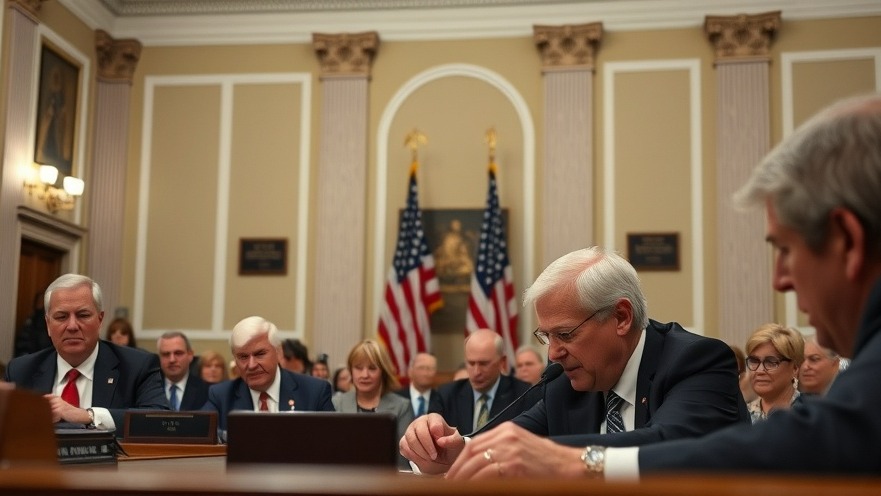
Unpacking the Federal Budget Changes for Medicaid
The U.S. federal budget is undergoing a pivotal transformation, particularly regarding Medicaid. House Energy & Commerce Committee Chair Rep. Brett Guthrie (R-Kentucky) has outlined a reform plan that aims to bolster support for those genuinely in need while cracking down on waste and abuse.
Understanding the Reforms: A "Revolution of Common Sense"?
Guthrie describes the proposed changes as part of a "revolution of common sense," indicating a shift away from regulations set during the Biden administration that he argues have led to inflated costs and inefficiencies within the Medicaid program. The reforms specifically target perceived abuses of Medicaid, particularly in states that have expanded eligibility criteria to include those not traditionally deemed eligible. The proposed legislation looks to impose work requirements for capable adults while ensuring that funding is targeted effectively toward vulnerable populations.
Addressing Concerns: Impacts on Vulnerable Populations
Opponents of Guthrie’s plan, many of whom support the existing Medicaid system, worry that these proposed changes may inadvertently cut off access to healthcare for millions of Americans. The argument posits that reforms under the banner of efficiency could lead to unintended consequences. However, Guthrie counters this narrative by asserting that these reforms will ultimately safeguard access for persons with disabilities, low-income children, and elderly beneficiaries who rely on the program for crucial healthcare services.
Differing Perspectives: What Do Experts Say?
Political analysts and healthcare economists are divided on the proposed reforms. Some assert that resisting Medicaid expansion is a detrimental move for public health, suggesting that comprehensive access to healthcare via robust Medicaid is crucial in safeguarding against rising health disparities. Others argue that Guthrie's approach adds necessary accountability to a system that has previously been exploited, highlighting the need for tangible systemic improvements.
Future Implications: How Will These Changes Shape the Landscape?
As the proposed reforms move through legislative channels, the conversation around Medicaid funding remains crucial for all stakeholders. If implemented, these changes are expected to create a more sustainable model for Medicaid, which would better serve intended beneficiaries without diluting care standards or access. For concierge medical practices, understanding these dynamics may present an opportunity to tailor services and outreach effectively, ensuring that they meet the evolving needs of both current and potential patients.
Practical Insights for Concierge Medical Practices
For practice owners and administrators, grappling with the implications of these reforms requires a proactive strategy. Here are a few actionable insights:
Stay Informed: Keep abreast of the latest updates on Medicaid reform discussions and how they may affect patient eligibility, especially for existing patients who rely on these services.
Adapt Business Models: Consider evolving service offerings to accommodate shifts in Medicaid funding and eligibility, ensuring comprehensive care for the vulnerable populations within your community.
Engage with Patients: Transparency is vital. Regularly communicate with your patient base about how potential changes could affect their healthcare options and what you’re doing to navigate these changes.
Understanding the nuances of Medicaid reform is not just a matter of policy but crucial for the operational success of concierge medical practices. As reforms continue to evolve, staying informed can empower practices to not only survive but thrive in a changing healthcare landscape.
As this debate progresses, it is essential for all stakeholders, including concierge physicians, to engage actively in these discussions, advocating for policies that will best serve the health needs of our communities.
 Add Row
Add Row  Add
Add 




Write A Comment